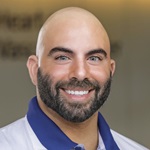Alzheimer’s And Dementia Still Remain a Mystery In Many Ways

Answer a few questions and we'll provide you with a list of primary care providers that best fit your needs.
Alzheimer’s disease and dementia are often used interchangeably because most think one means the other, but the two syndromes couldn’t be more distinct from the other, according to the National Alzheimer’s Association (NAA).
Alzheimer’s disease is one form of dementia, a syndrome caused by brain cell death and characterized by a loss of cognitive function that affects everyday life. Up to 60 percent of dementia cases are caused by Alzheimer’s disease, which is why so many often think the two are one in the same.
But there are many other causes of progressive memory loss.
Alzheimer’s a Form Of Dementia
Alzheimer’s and dementia remain a mystery in many ways, another reason the two similar syndromes are often mixed up in everyday conversation.
The National Institute on Aging explains the difference in the two: Dementia is a brain disorder that affects communication and the performance of daily activities while Alzheimer’s disease is a form of dementia that specifically affects parts of the brain that control thoughts, memory, and language.
There are more than a dozen specific types of dementia disorders. Symptoms vary from person to person and the type of dementia. An early clinical symptom can be difficulty remembering recent conversations, names, or events. Apathy and depression can also be present at the beginning. Later symptoms include impaired communication, poor judgment, disorientation, confusion, behavior changes, and difficulty speaking, swallowing, and walking.
A few other common forms of dementia are caused by vascular disease of the brain, some associated with Parkinson’s disease and a type called normal pressure hydrocephalus where the fluid cavities in the brain are larger than usual.
Other causes, unrelated to dementia, contribute to memory loss. These include metabolic imbalances due to thyroid dysfunction, certain vitamin deficiencies, and depression.
Dementia is often an age-related syndrome. About three percent of adults age 65 to 74 years, and up to 20 percent of adults between age 75 and 84 years will develop dementia. Although dementia mostly affects older adults it should not be viewed as a normal part of aging.
The Road To Diagnosis
Family members who suspect a loved one is exhibiting signs of dementia often find it difficult to take the first step toward an evaluation. Individuals may fear the diagnosis or deny they have a problem, concerned about how it could affect their quality of life.
Social workers can help patients and their families adjust to life with memory loss.
When traveling this road with a loved one, keep in mind the following:
Earlier is often better. Delaying a medical evaluation out of fear only puts off effective treatment or possible reassurance that the memory loss is due to something other than dementia. It’s important to know that medication is now available that may help slow the progression of dementia.
Consult your physician. A family physician can provide a familiar setting to conduct an initial evaluation, which may or may not result in a referral to a neurologist.
Testing can provide answers. Today’s diagnostic tools, such as brain imaging, can help neurologists accurately diagnose what is causing memory loss. Such a targeted diagnosis can provide effective treatments and reassure families of the real cause.
Dr. Fadi Tayim discusses brain imaging that can help diagnose Alzheimer’s disease.
Click play to watch the video or read video transcript.
Memory loss isn’t always permanent. Do not assume memory loss means dementia. There are many times when memory loss is due to a cause that may be reversed.
Answer a few questions and we'll provide you with a list of primary care providers that best fit your needs.
Source: Fadi Tayim, Ph.D., Clinical Neuroscience Institute; National Alzheimer’s Association; National Institute on Aging






